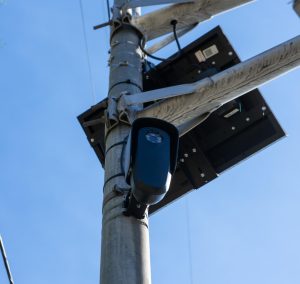Three strikes, you’re out! The cruel and unusual punishment of the three strikes law
March 4, 2021
Three strikes, you’re out! The terminology is laughable. A flippant expression that is used to discuss a game like baseball should not be used to determine someone’s life. However, within penitentiaries across 26 different states, this modern-day law has been enacted since 1993 in Washington, and dictates many life sentences for incarcerated individuals behind the out-of-sight, out-of-mind barbed wire fence, just miles away from Whitman College.
According to the Three Strikes Project at Stanford Law School, the three strike rule imposes a life sentence “for almost any crime no matter how minor, if the defendant had two prior convictions for crimes defined as serious or violent.”
This means that the defendant’s past offenses, which have already been served, are factored into punishment for a third offense. It sounds archaic, but it’s not. It’s a law — just like many others — developed during a time where “tough on crime” rhetoric was a one-way ticket to reelection and to the presidency (cough cough, Bill Clinton).
Many have argued that this law has good intentions because it keeps murderers and rapists off the street, but “good intentions” mean nothing when the bill itself creates a form of cruel and unusual punishment.
According to the Seattle Times, the Washington State Supreme Court has recently allowed for the resentencing of a three strike incarcerated person, Lawrence Fillion, but has refused to do a constitutional review that could free many people in a similar situation.
Lawrence Fillion has been incarcerated for 24 years. His crime for life imprisonment? Robbing a Snohomish County 7-Eleven. His past offenses? They shouldn’t even matter, because he had already served his time for them, and they should not factor into the sentencing for his last offense. The three strike law, however, does exactly that.
State legislation has been discussing resentencing since last year, when the legislators dropped second-degree robbery from possible strikes. However, they did not make the resentencing retroactive, meaning that there are still people with life sentences for this offense. Furthermore, resentencing is not enough. It does not call into question that, no matter the third offense, the use of past crimes and convictions that have already been served violates the Eighth Amendment.
Every single state that engages in this practice needs to enact a constitutional review of the three strike law. No longer can we continue to ignore this problem, because the three strike rule constitutes cruel and unusual punishment and is a gross violation of state power.
We need to stop playing games with people’s lives. It is not funny, nor does it follow the constitution, a document that we apparently love so much. In relation to the three strike law, we should also pursue steps to prison abolition. Although it appears as though prison reform is something we can take our time with, for incarcerated people the time is now. Not in three years, or five, or ten.
By making steps to abolish the three strike law and the judging of convictions based on past crimes, we can move in the right direction. As Whitman students and Walla Walla residents, we live in the shadow of the Washington State Penitentiary. Yet, for many of us, it is still out of sight. This must change.







Donnell McKinnon #720636 • Mar 7, 2021 at 9:35 am
Donnell McKinnon, 720636, has served 19 years at Walla Walla State Penitentiary and his past crimes and convictions that have already been served violates the 8th Amendment. His life sentence without parole is nothing but a form of cruel and unusual punishment and needs to be released. Fillion vs Washington Stated, was just granted resentencing to complete less that 2 years and he will be a free man after giving a life sentence just like Inmate, Donnell McKinnon 720636. Set Him Free! McKinnon’s crimes don’t even hold the amount of charges. Never a weapon or drugs. This is Cruel. He lost his mother, father, and brother will in prison. He’s not a murderer. Even murderers are getting second chances. If this is not fair and injustice, what do you call it. The State is taking a man’s life away from him. McKinnon has completed every class in prison you can think of and is called on by authorities for his assistance when the need work done because they know he is a great person and guy. He also caught Covid and survived. The officer and inmates thought he had died as he was moved for medical treatment and they were all saddened and missed his present but was overjoyed when they realized he was alive. Let him live! Set him free! PLEASE look into this inmates rights. Thank you!